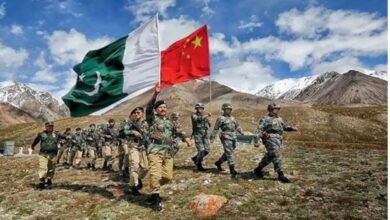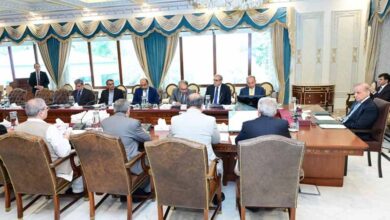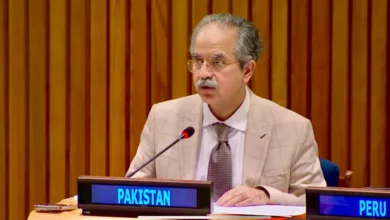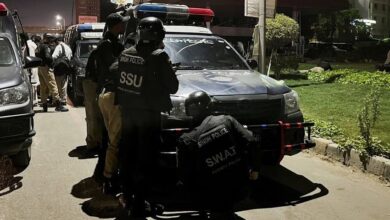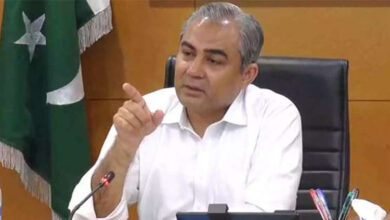The former foreign minister of Pakistan Bilawal Bhutto Zardari issued a stern warning to India, saying New Delhi must adhere to the Indus Water Treaty or be prepared for retaliation, including “war by building dams and canals”.
Speaking during the budget debate in the National Assembly on Monday , Mr Bilawal said India’s suspension of the treaty was “illegal and a violation of the United Nations Charter”, adding that any move by India to block Pakistan’s water would leave Islamabad with no choice but to defend its rights forcefully.
“If India tries to deprive Pakistan of its water share, we will fight — just as we have done before. Our forces have defeated India in the past, and we will do so again if needed,” he said.
Mr Bhutto also criticised Indian Prime Minister Narendra Modi’s “aggressive posture” and held New Delhi responsible for “half of the terrorist incidents in Pakistan”, questioning whether Pakistan should reciprocate with war every time it is attacked.
“Our narrative is for peace, while Modi’s is for war. But the people of both countries deserve peace. We are not just fighting for Pakistan’s interest — we are also fighting for the betterment of the Indian public,” the PPP chairman said.
He called for a sustainable peace between the two countries, saying the existing ceasefire was not enough. “Lasting peace is the only way forward. The lack of peace in the region is not in the interest of either country,” he said.
The former foreign minister claimed that Pakistan had secured military, diplomatic and narrative victories over India, and said that while previous governments “stood helpless” in the face of Indian aggression in Kashmir, the current government had taken a firmer stand.
“During the PTI tenure, Kashmir was attacked in 2019 and the then prime minister only asked ‘should I go to war?’ — and that was the end of it. Today, we respond by defending our skies and challenging India’s narrative,” he said, referring to Pakistan’s downing of an Indian aircraft following the Balakot strikes.
He added that India’s claim that Kashmir was its internal matter had failed on the global stage, as the issue was now “being discussed internationally due to Pakistan’s effective diplomacy”.
Condemnation of Iran attacks
Turning to the Middle East, he also condemned recent attacks on Iran’s nuclear sites, reportedly by the United States and Israel, terming them “a blatant violation of Iranian sovereignty”.
“Attacking Iran on the basis of false claims — just like Iraq — is unacceptable. Iranian scientists were targeted in their homes. Nuclear facilities were struck, putting the entire region, including Pakistan, at risk,” he warned.
He said the international community must not remain silent. “First they went to Lebanon, then Yemen, and now Iran. If we do not raise our voice today, no one will be there to speak for us tomorrow.”
He added that since October, genocide had continued in Palestine and urged for the Israeli government to be held accountable. “The time has come to stop the Israeli regime’s brutal expansionism,” he said.
Support for defence budget
On the domestic front, Mr Bhutto-Zardari announced his support for the federal government’s proposed budget for FY2024-25, noting that Pakistan “must prepare for all eventualities”, which justifies the 20 per cent increase in the defence budget.
“I thank the Prime Minister, Finance Minister and Foreign Minister for consulting the PPP during the budget process. We wanted greater increases in salaries and pensions, but this is still a step in the right direction,” he said.
He expressed dissatisfaction that the PPP’s demand for South Punjab to be allocated 30 per cent of Punjab’s share in the Public Sector Development Programme (PSDP) was not fulfilled, but added that the finance minister had agreed to revisit the matter next year.
The PPP chairman also called for more federal support to provinces hit hardest by terrorism, particularly Balochistan and Khyber Pakhtunkhwa.
“India is investing in terrorism in these regions. We must respond by strengthening our institutions and making an effective counter-terrorism strategy,” he said.


